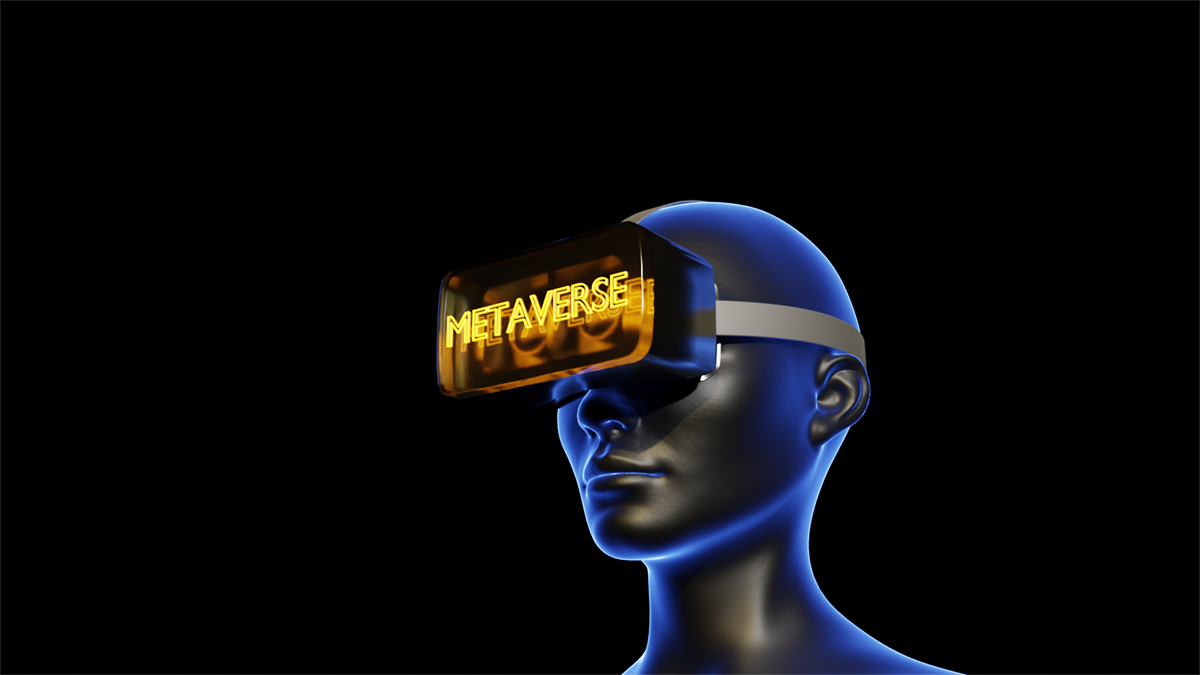Metaverse: A Parallel Universe?

Talking about Metaverse today is like talking about the internet in the 1980s and 1990s. Newly introduced, the internet was all about communicating through texting, emailing, etcetera.
Later, it added pictures, videos, graphics, and 3D animations, which greatly enhanced the user experience.
Now we can enjoy the very benefits of the internet – watching movies or series online, studying online, listening to unlimited music, video chatting with loved ones, work-related e-meets, and much more.
Heard of the internet’s new favourite buzzword, Metaverse, yet? From live concerts in the immersive Fortnite universe to a fashion show hosted in Decentraland, the Metaverse consists of crazy things.
Are you curious to find out what else the Metaverse is capable of?
Dive in as this article explains what Metaverse is, how to access it, and its privacy and cyber safety policies.
Table of Contents
What is Metaverse?
Think about the Metaverse as a digital replica of the real world. This simulated digital environment combines concepts from augmented reality (AR), virtual reality (VR), and social media to create spaces for rich user interaction.
Basically, it’s what social media is today, but it’s more streamlined, immersive, and interacting.
In his sci-fi novel Snow Crash, Neal Stephenson uses the term Metaverse. He believed it is a parallel digital realm that exists side-by-side with the real one where you lead your digital life.
There is so much happening in the Metaverse; given the immersive experience, you can:
- Real estate purchase and monetisation
- Develop VR experiences, games, and scenes
- Create your avatar
- Work with remote colleagues
- Socialise and make new friends
- Shop for real and virtual products
- Attend concerts, fashion shows, and learning events
According to Bloomberg intelligence, the Metaverse will become an $800 billion worth market by 2024, with giant brands such as Meta, er, Facebook, Microsoft, Sony, and Apple investing and backing it up to make it a reality.
Metaverse is also a source to translate the digital economy, where users can create, buy, and sell things.
How can you access Metaverse?
At this time, Metaverse does not have a single gateway, but experts suggest you purchase some hardware that will help you truly immerse yourself in the virtual world.
In a conversation with VICE, Ibrahim Baggili, a cybersecurity expert, said, “It’s not real at this stage, and won’t become real until people have a single location they can go to to get into a virtual world they can virtual could live in”.
The hardware can range from $10 (Google cardboard) to the mid-range $300 (Oculus Quest 2 headset) to the higher quality $999 (valve index VR).
It includes a customised avatar and digital assets, and the data will get recorded on a blockchain. Moreover, to use Metaverse, you must create an avatar and interact with other people there.
Metaverse offers a variety of experiences, from gaming and virtual workspaces to live entertainment on platforms such as Decentraland, Axie Infinity, Horizon, Sandbox, Fortnite, and Roblox.
As said earlier, hardware sure will help you have an immersive experience, but a VR is not necessary to access the Metaverse.
In the same way, we access the internet nowadays through our smartphones, tablets, etcetera; we will probably continue to use these devices to connect to the Metaverse.
“Normally, we’ll access the Metaverse via a smartphone, but we will often be passively in it. Hundreds of millions of people access real-time rendered 3D virtual worlds each day via tablets and smartphones,” said Mathew Ball, a venture capitalist and angel investor. He has written a series of essays on the structure of the Metaverse.
“These devices will likely remain the primary way we interact with the metaverse in a decade,” he added further.
Metaverse–what is it for?
Despite sounding like a video game, Metaverse is an influential player in growing the digital economy.
“The Metaverse will grow the digital economy which is the primary growth driver of the world economy,” said Mathew Ball.
People extensively use Metaverse for entertainment, fashion, gaming, and parties, but experts argue that Metaverse will contribute equally to the education sector.
“Just like how you’d better understand dissection by actually performing it rather than just reading about it, 3D-based education is likely to be much better than schooling over Zoom,” said Ball.
We agree that it is better to practice and learn rather than just read books and try to memorise everything.
Is Metaverse Safe?
Answering this question was a significant conversation in building the Metaverse. Recently, a woman reported being sexually harassed and virtually gang-raped in Metaverse.
It is saddening that women aren’t left alone even when we talk about hanging in the virtual world.
The Metaverse is said to be an ultimate surveillance tool.
Among Meta’s current safety features is the ability to mute and block people or transfer to a Safe Zone to give users some time away from their surroundings.
Upon submitting a report, a recording of what the reporter experienced before entering the safe zone will be available to serve as evidence of the last few minutes of the user’s experience.
CCDH researchers pointed out that filing a report was a lengthy process. In addition to this, these features overlook the possibility that a user might not be able to enable safety precautions easily and quickly if they experience some threat.
The team is still working on a legal framework of what happens if anyone gets harassed in Virtual reality.
Wrapping Up
Everyone is waiting to experience the Metaverse and explore activities. Experts say that many people will be in the Metaverse by 2030.
The idea of the Metaverse still seems vague as there are a lot of challenges to overcome; among them are accessibility, legal, commercial, and security challenges.
As interesting as it sounds, not everyone will use Metaverse; everyone human would want to experience it once in a lifetime. Let’s play safe here and say that the world will live intermittently — we might put on our VR glasses once in a while but not keep them on for so long.
Or maybe a decade from now, everyone will be completely living in a digital realm called Metaverse.
The time shall decide the rise of the Metaverse.
